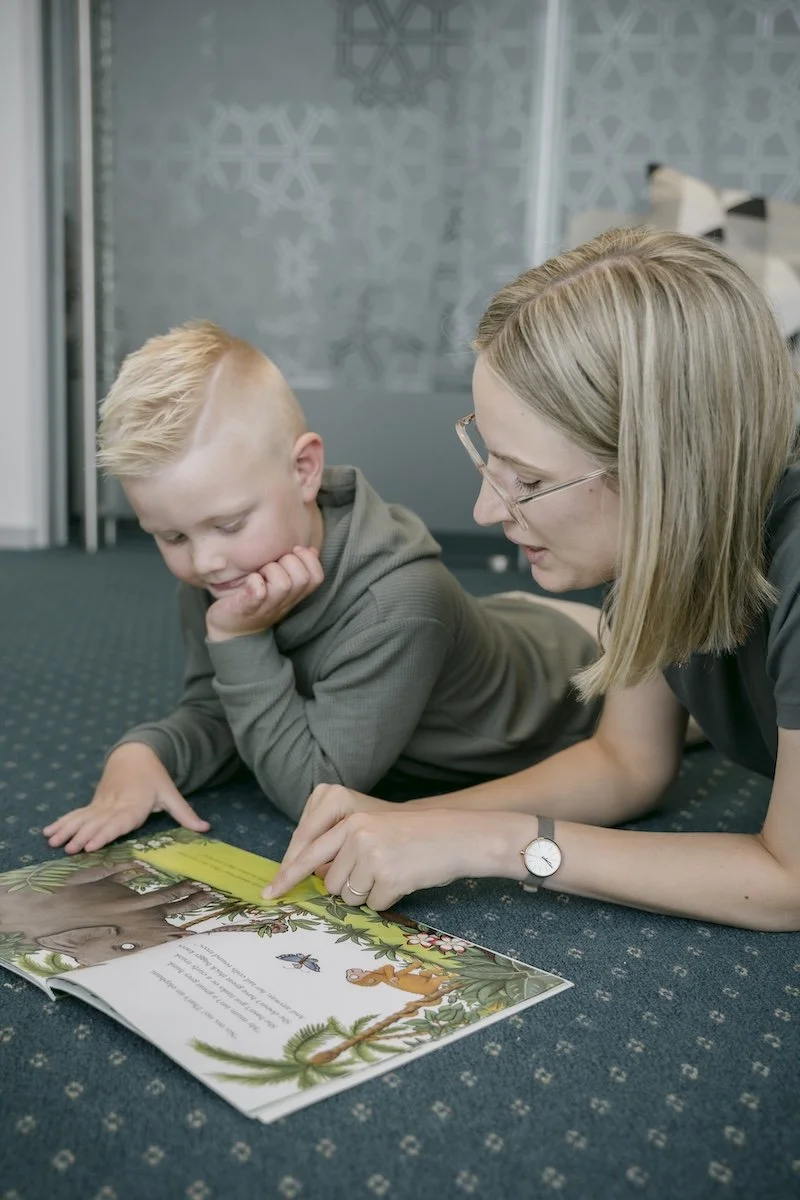Literacy & Learning Challenges
We help children and adults build strong foundations in reading, spelling, comprehension, and written expression — so they can participate in everyday activities with confidence.
Who this is for?
Struggle to sound out words or read fluently
Reading that’s slow or full of guesses and missed words may point to trouble with sounding out and decoding words.
Avoid writing tasks or write very little
Some children avoid writing due to difficulties with sentence construction, planning, or spelling, making it hard to express what they know.
Have trouble understanding what they read
Words may be read accurately, but it is difficult to understand the meaning, remember key details or summarise information clearly.
Seem bright but still fall behind in class
When there's a mismatch between thinking ability and academic performance, there could be a hidden language or literacy difficulty.
Trouble with spelling words
Difficulty applying spelling rules, sounding out words accurately, or spelling longer words that makes written tasks challenging and frustrating.
Have a diagnosis (or signs) of dyslexia or a language disorder
We support students with diagnosed or a suspected specific learning difficulty to build skills in a supportive, structured way.
How can we help?
Phonological awareness
Strengthen essential pre-literacy skills like syllable segmentation and blending sounds through modelling and structured practice.
Phonics instruction
Teach how to connect speech sounds to the right letters and spelling patterns, through clear instruction and structured practice.
Written expression
Build skills in planning, organising, and writing sentences and paragraphs for different purposes - like reports, emails, or text messages - using models, scaffolds, and guided practice.
Reading comprehension
Build understanding through targeted practice - such as summarising key ideas, learning new vocabulary, and making inferences - based on your current skill level and goals.
Reading fluency and decoding
Enhance accurate, fluent reading through phonics instruction, decodable texts, self-monitoring strategies, and techniques like the “scooping method.”
Spelling
Improve spelling accuracy by learning spelling patterns, grammatical markers, strategies for breaking down longer words, and techniques for spotting and correcting errors.
How we work?
1
Assessment
We start with a detailed look at your child’s reading, writing, and language skills to find the gaps.
2
Therapy
Plan
We design a therapy plan that targets foundational skills and aligns with school learning.
3
Sessions
Engaging, structured, and evidence-based sessions — based on language-rich approaches.
4
At-home practice
We equip families with simple tools and routines to reinforce skills at home.
5
School collaboration
Where possible, we coordinate with teachers and learning support staff to create consistency.
Learn more about Assessments . Therapy . Telehealth . Community Visit







